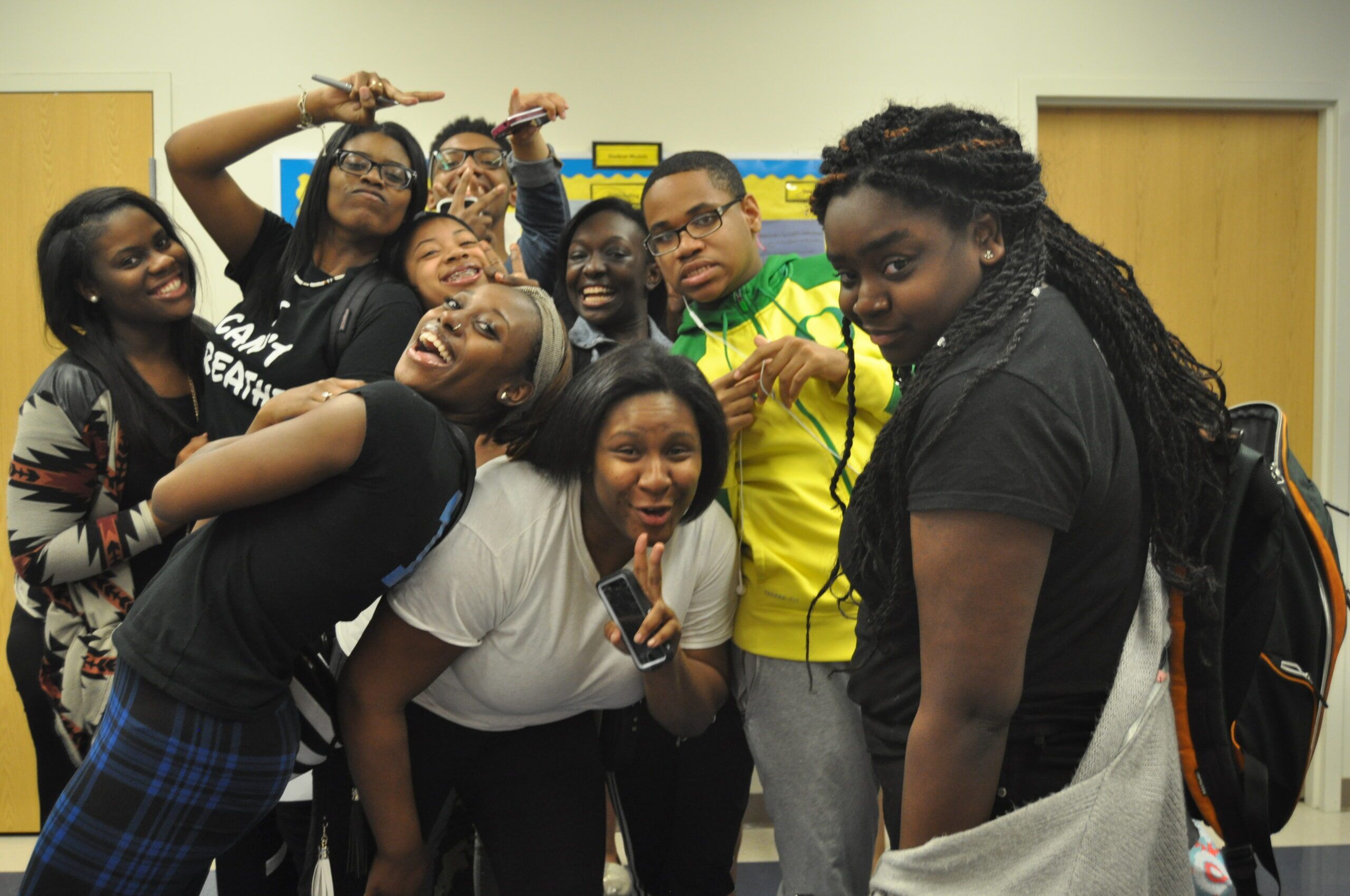As an avid Tumblr user, I always look forward to the monthly #Blackout day, the most recent being June 21. On #Blackout, black people share, like, distribute, and reblog other photos of black people and culture.
This project was started to bring positive attention toward the black community on all social media platforms. These photos depict black people from all backgrounds and walks of life.
“The Blackout team and I noticed that there was a need for a positivity movement for black people that focused on visibility,” Marissa Rei, 21, co-creator of #Blackout and recent graduate of New York University told VOX. “We aren’t represented in the media enough and a lot of our visibility was centered on tragic events like the deaths of Mike Brown and Eric Garner. We figured that there should be a time where black people post selfies and have fun and make themselves visible in positive and uplifting ways.”
Frankly the movement was needed as some have grown weary of only Eurocentric features upheld as the epitome of beauty.
“Never in social media have I ever seen something that I felt I could participate in and feel beautiful,”said Morenike Ibidapo, 17, a senior at Westlake High School. “I am beautiful and black, but this entire need to push for praising only Eurocentric features made me feel internally sick. I feel as if white people have a perspective that everything is about them. #Blackout was not for them to join and pretend to embrace the so called struggle. That’s like showing up to an event for those with brain cancer, but only complaining about a lack of attention towards lung cancer.”
I saw posts of strong Black women graduating from Harvard and the horrible cases of police brutality. The people who follow me on Tumblr of Indian, Mexican, and European descent were actively reblogging photos. It was a pleasure to see how they were embracing #Blackout without offending anyone. Sadly with so many negative events in the media, it appears that in some parts of the world, people dwell within the 1950s timezone.
Despite #Blackout being an event to promote a positive image, there were those who attacked Black people. Phrases such as “There should be a #Whiteout” and “This movement excludes people, therefore it is racist” were thrown around. Of course after the #Blackout day was over, everyone could go back to posting their selfies. By doing this, it shows respect for those who wanted a day reserved to themselves.
“I did #Blackout because I wanted it to be more known that we need to love colored people and nothing can change that,” Jasmine Hinds, freshman at Paine College 18, told VOX. “I feel like Caucasian people are trying to raise awareness to themselves when in reality everyone already knows them. They are everywhere, and I believe they are jealous because people of color started this movement. Maybe they are even more jealous because they see what they want for themselves.”
Hinds’ statements point out the irony among those who supported #whiteout: they were jealous of #blackout despite the lack of visibility among blacks in the media.
Advertisement companies do not showcase many people of a darker color. In countries such as India, the media continues to fester with the idea that people with lighter skin tones are more aesthetically pleasing.
While ads feature darker skinned women, they are put through an editing process that lightens the models’ skin complexion. India’s obsession with fair skin was documented in 1978 when multinational consumer good company Unilever started Fair and Lovely Cream. Ads for the product showed how people can lighten all parts of their body,including the genital area.
As I scrolled down my Tumblr dashboard on #Blackout day, it was nice to see Black people embracing their melanin and gaining confidence. With so much demand for other minority groups to be positively represented in the media, movements such as #Asian Invasion, #MyCultureIsNotYourCostume, and #BrownSkin, and #defyingstereotypes were birthed. It showed me that other minority groups wanted a day to showcase their beautiful faces too.
At the end of the day, it should be known that all complexions are absolutely beautiful. Everyone has the right to flex on their complexion and feel confident in their own skin.
“I would tell those struggling to love and accept their melanin that it is a journey,” Marissa told VOX. “You aren’t going to randomly wake up one day and decide to be better to yourself and be completely in love with who you are. It takes time, it takes patience.”
